Beer and wine flow, sausages sizzle, accordion music fills the air . . . It’s the season for Oktoberfest, but we aren’t in Germany—we’re in Mt. Angel, Oregon.
The agricultural area around Mt. Angel, located northeast of Salem and settled by German pioneers in 1867, was said to resemble Bavaria in Germany. In 1966, a few locals wanted to increase awareness and improve the economy of the area. They decided on an Oktoberfest styled after the world-famous event in Munich, and Mt. Angel’s inaugural festival brought in 39,000 people that year. Today, average attendance at the volunteer-run festival tops 350,000.
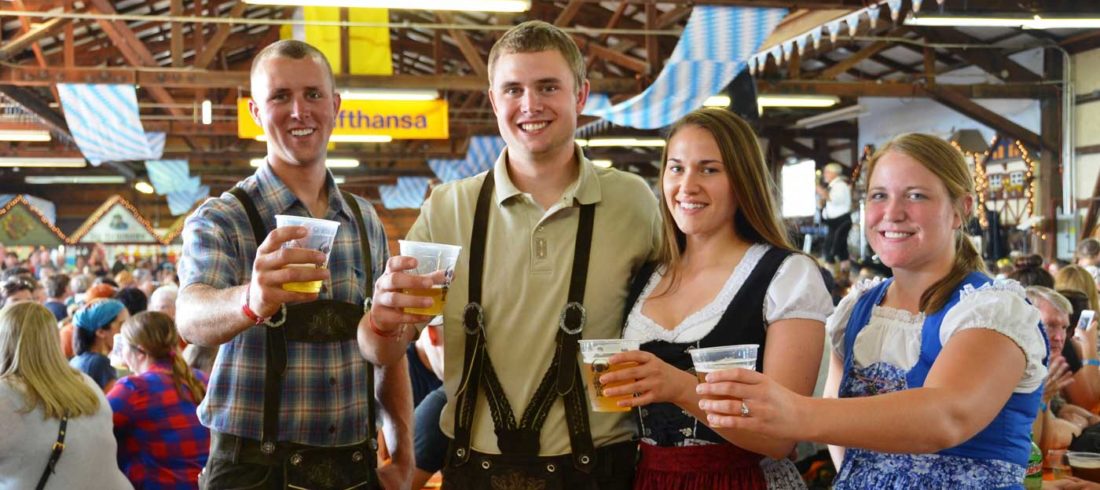
“We always keep that German heritage,” says Monica Bochsler, festival board member. “There are lots of festivals that don’t have, say, a German band or an accordion focus.” Bochsler has been involved with the festival most of her life, including volunteering at some of the nonprofit-run food booths. In 2011, she joined the 19-member board.
“We also have stayed very focused on the cozy happiness of being together, or gemütlichkeit,” she explains. “We are a Volksfest, a folk festival, a people festival. The German fest, people always think about the beer drinking, and we have that, but we are so much more here.”
Sharing the bounty with the community is a top focus. Over the years, Oktoberfest has donated more than $3.1 million to schools, churches, civic organizations, youth activities, senior services, hospitals, and other causes. For the nonprofit organizations running each of the 52 food booths, the festival is a major fundraising opportunity.
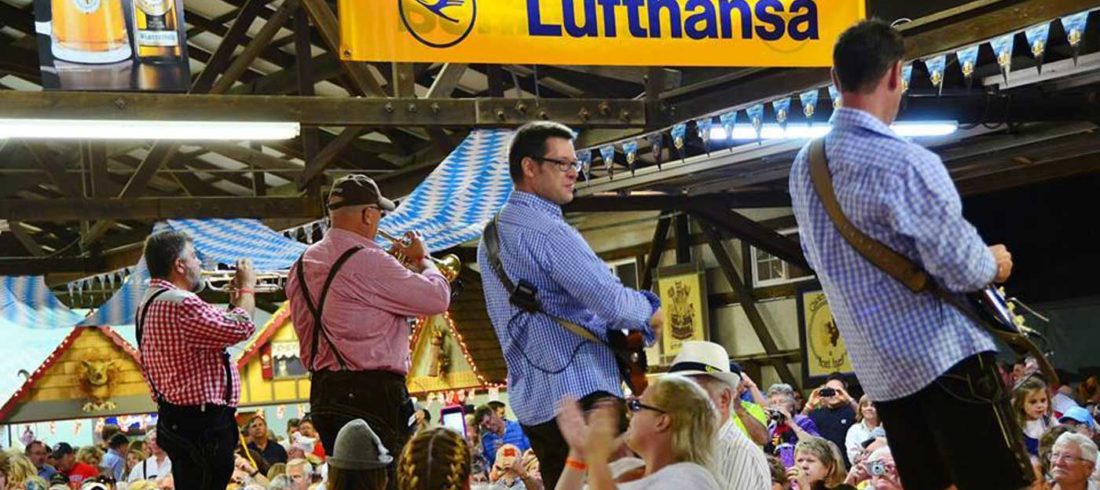
“We are all about giving back,” Bochsler says.
Attendees come from all over the country, including “people who have lived for extended times in Germany and people who are expats in the US,” Bochsler says. “One girl from Switzerland told us on Facebook that the fest reminds her of Switzerland.”
Over the years, the festival has focused on being accessible, family-friendly, and open to all. Entry is free, as are many events, although three of the six gardens—Biergarten, Weingarten, and Alpinegarten—have a cover charge for anyone 21 and over.
The laid-back Prostgarden, local-focused Hopfengarten, and kid-centered Kindergarten have free entry. Kid activities include pony rides, a hay maze, petting farm, face painting, balloon art, and even rock climbing. “No wristband, no tickets for rides,” Bochsler says. “Kids walk up and they’re good to go. Being kid-focused is part of what keeps us so family-friendly.”
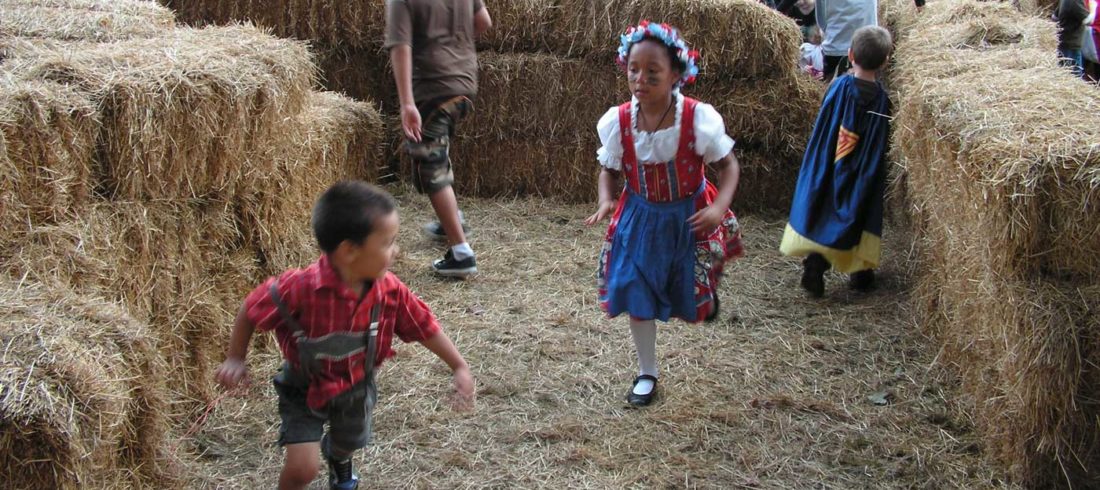
The Biergarten’s hardwood floor hosts nonstop dancing. With overhead wooden beams and a sawdust-covered floor, Weingarten brings a rustic feel that’s Old World without being old-fashioned. Prostgarten’s gentle acoustic accordion music encourages conversation, relaxation, and sitting on the grass with a beverage. Hopfengarten, their newest garden premiering this year, focuses on local beers. Each garden has its own particular combination of food, drink, live music, and other entertainment so people can find the environment that best fits what they want from their Oktoberfest experience.
“In our Oktoberfest Challenge, similar to an Olympics, we go to Biergarten and Weingarten, pull people out of the crowd, and have them do activities, like keg rolling and stacking, hammerschlagen (pound a nail as fast as you can), and yodeling,” Bochsler says. “It’s a good-natured competition amongst friends. So many people want to be involved in the festival, not just watch.”
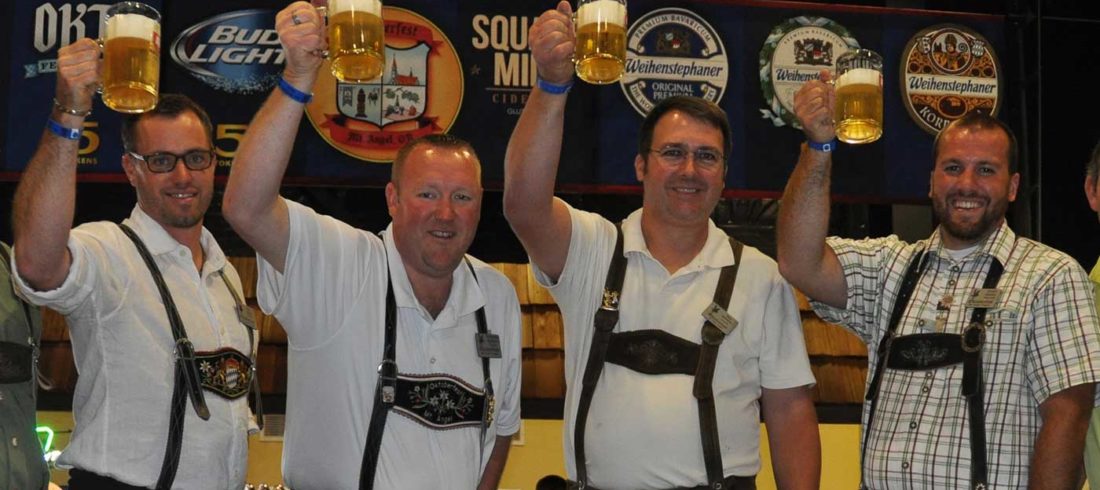
Throughout the festival weekend, people can enjoy and participate in a range of activities, including a half-marathon, car show, wiener dog races, golf tournament, military vehicle display, and a street dance. During the non-competitive, all-ages Volkswalk, you can walk a guided course at your own pace.
At the heart of the festival, Die Fruchtsäule, or the Harvest Monument, reminds people of the importance of agriculture. Each year since the festival’s inception, an artist designs a unique monument. Philis Schmidt has served as Harvest Monument Artist, and her creations have become natural meeting spots and a perfect place to grab a commemorative photo since she began in 2002.
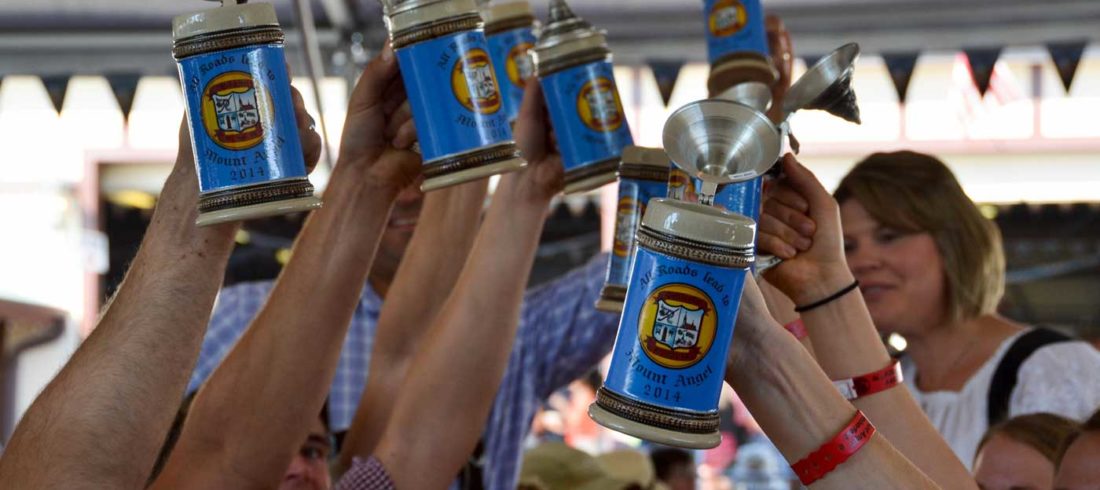
With bratwursts and sauerkraut, spaetzle, and Rueben and Berliner sandwiches, food booths offer a range of German-style favorites. Typical fair favorites, such as donuts, elephant ears, chicken and waffles, and kettle corn, are also available, along with many other selections. In the Kindergarten, kids can enjoy cotton candy, hot dogs, sausages, snow cones, nachos, and various drinks.
German and Northwest wines and beers will pour from every tent but Kindergarten, along with ciders, radlers, and non-alcoholic options. More than 30 beers from Spaten, 10 Barrel, Widmer, Andechs Monastery, Weihenstephaner, and Mount Angel’s own monk-run Benedictine Brewery will be available. Portland’s HUB and Germany’s Bitberger are also collaborating on a pilsner. Eugene’s Kastle Hill has imported a specialty selection of German white, red, sparkling, rosé, and dessert wines, with stand-out German whites, including chardonnay, pinot gris, Riesling, muskat, Gewürztraminer, and other special varietals.
No matter the food, drink, or entertainment, though, the 53rd Oktoberfest remains focused on its roots as a Volksfest, says Bochsler. “It’s about family being together.”
53rd Mt. Angel Oktoberfest, Sept 13-16, 2018, Downtown Mt. Angel, Free admission, some events have a cover charge, oktoberfest.org


